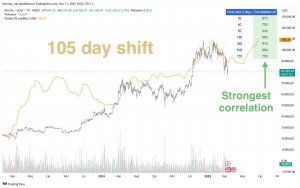Why Sustainability Is Increasingly Unsustainable

This article is a part of a series based on our Annual Strategic Report, The Future Is Gig. Download the report here.
The conventional business model has grown unsustainable due to various factors. The competition for the best hires has led to the provision of intricate and expansive benefits, contributing to the increasing cost of the conventional employee/employer model. According to a systematic review of sustainable business models, conventional business models focus mainly on economic aspects, while sustainable business models include environmental and social aspects.

This emphasis on broader economic aspects and stakeholders has led to an inefficient workplace characterized by bureaucracy, filler, and waste, further adding to the cost burden.
Moreover, the traditional 40-hour workweek is being challenged by the notion that most full-time jobs in America don’t require 40 hours and can be done in significantly less time, leading to a reevaluation of the conventional employee/employer model.
At the same time, the rise of Environmental, Social, and Governance (ESG) considerations has led to a shift in corporate focus, with many companies no longer paying attention to customers and stockholders. Instead, they are increasingly prioritizing sustainability and social responsibility.
This shift is highlighted in a review of sustainable business models, which emphasizes that sustainable business models allow for a holistic view of how business should operate, incorporating social and environmental aspects into their values. As a result, the conventional business model is facing pressure to adapt to these changing priorities, which is further contributing to its unsustainability.





